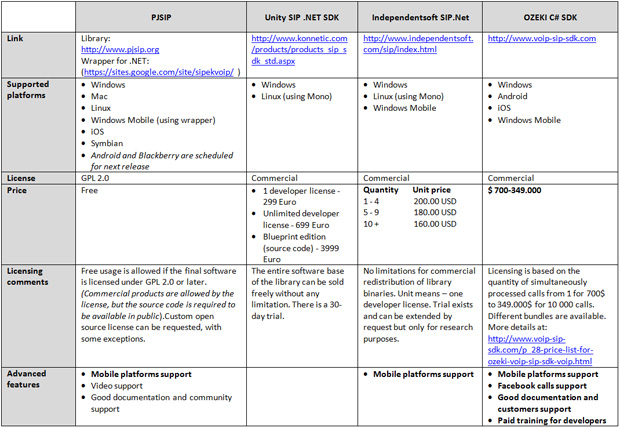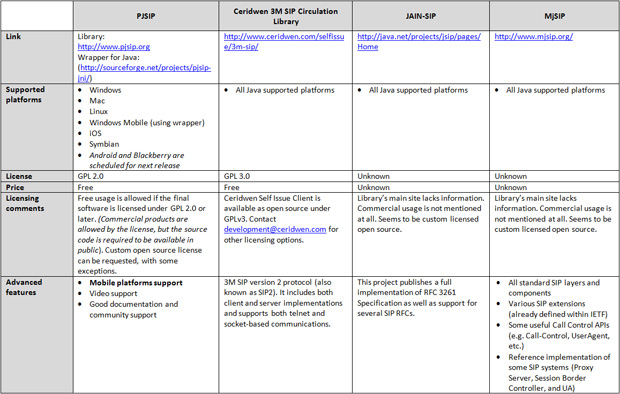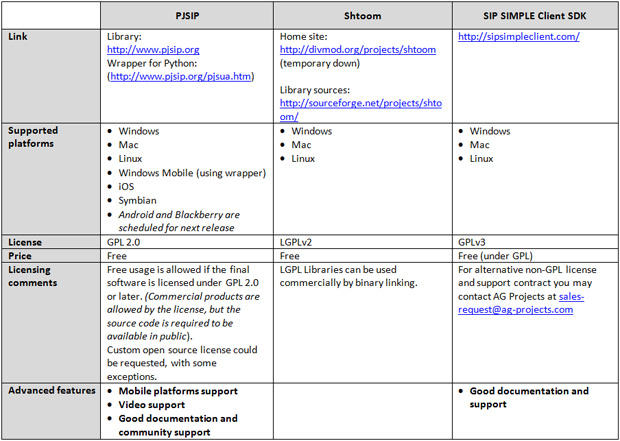SIP technology overview
The Session Initiation Protocol (SIP) is an IETF-defined signaling protocol widely used for controlling communication sessions such as voice and video calls over Internet Protocol (IP). This protocol can be used for creating, modifying, and terminating two-party (unicast) or multiparty (multicast) sessions. Sessions may consist of one or several media streams. Other SIP applications include video conferencing, streaming multimedia distribution, instant messaging, presence information, file transfer, and online games.
The SIP protocol is an Application Layer protocol designed to be independent of the underlying Transport Layer. It can run on Transmission Control Protocol (TCP), User Datagram Protocol (UDP), or Stream Control Transmission Protocol (SCTP). It is a text-based protocol, incorporating many elements of the Hypertext Transfer Protocol (HTTP) and the Simple Mail Transfer Protocol (SMTP).
Supported platforms description
Development of both client and server SIP applications is possible under different operating systems, using different programming languages. In this article, we will mostly compare libraries for the desktop server part development under the Windows operating system using .NET, Java, and Python. We will also briefly go over the possibilities of *NIX and mobile (WM7, iOS, and Android) platforms.
Comparison matrices
Conclusion
Each language has platform-specific libraries, but it is PJSIP which is presented in all three matrices. Due to native C++ implantation and a wide range of wrappers available, PJSIP could be used on different mobile and desktop platforms. Together with good functionality, documentation, and community support, PJSIP appears to be the best choice. So we recommend it both for commercial or open-source development. A detailed description of its architecture and usage is given in a separate blog article.
Industries and Technology Areas:
Industries: telecommunications
Technology Areas: SIP/VOIP telephony, software development, Windows, Linux, Java, .NET, Python, iOS, Android












